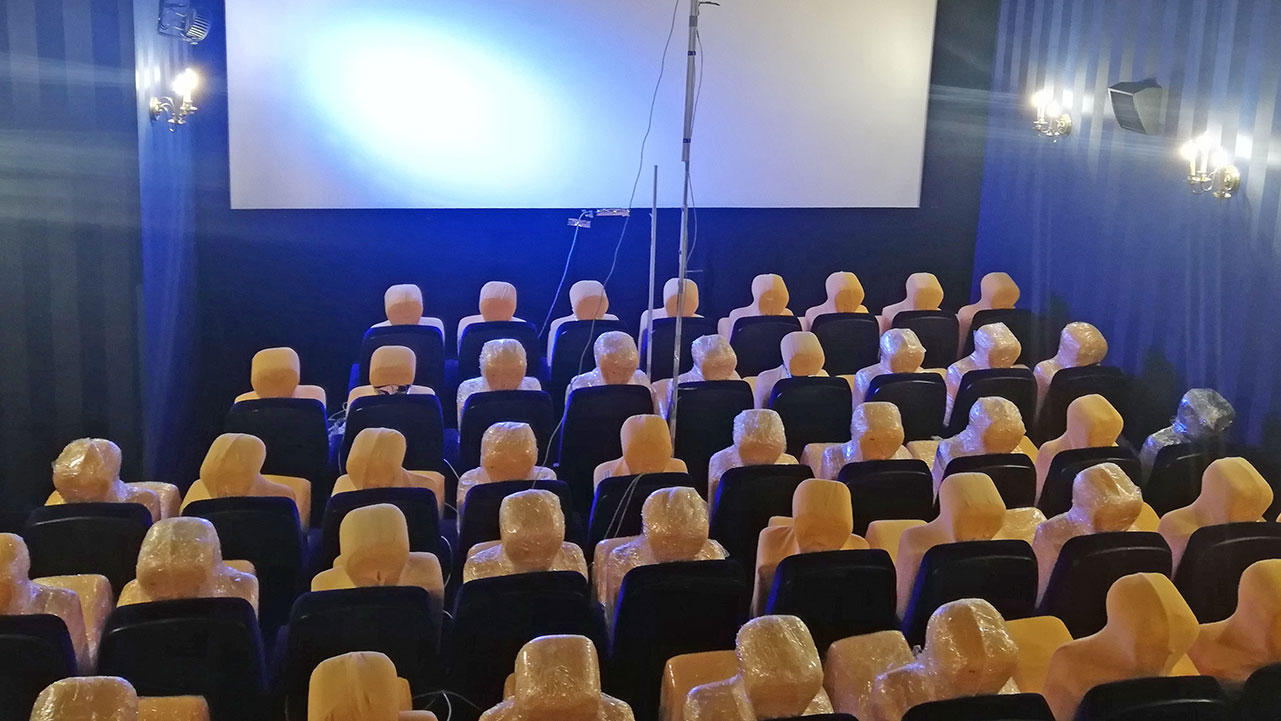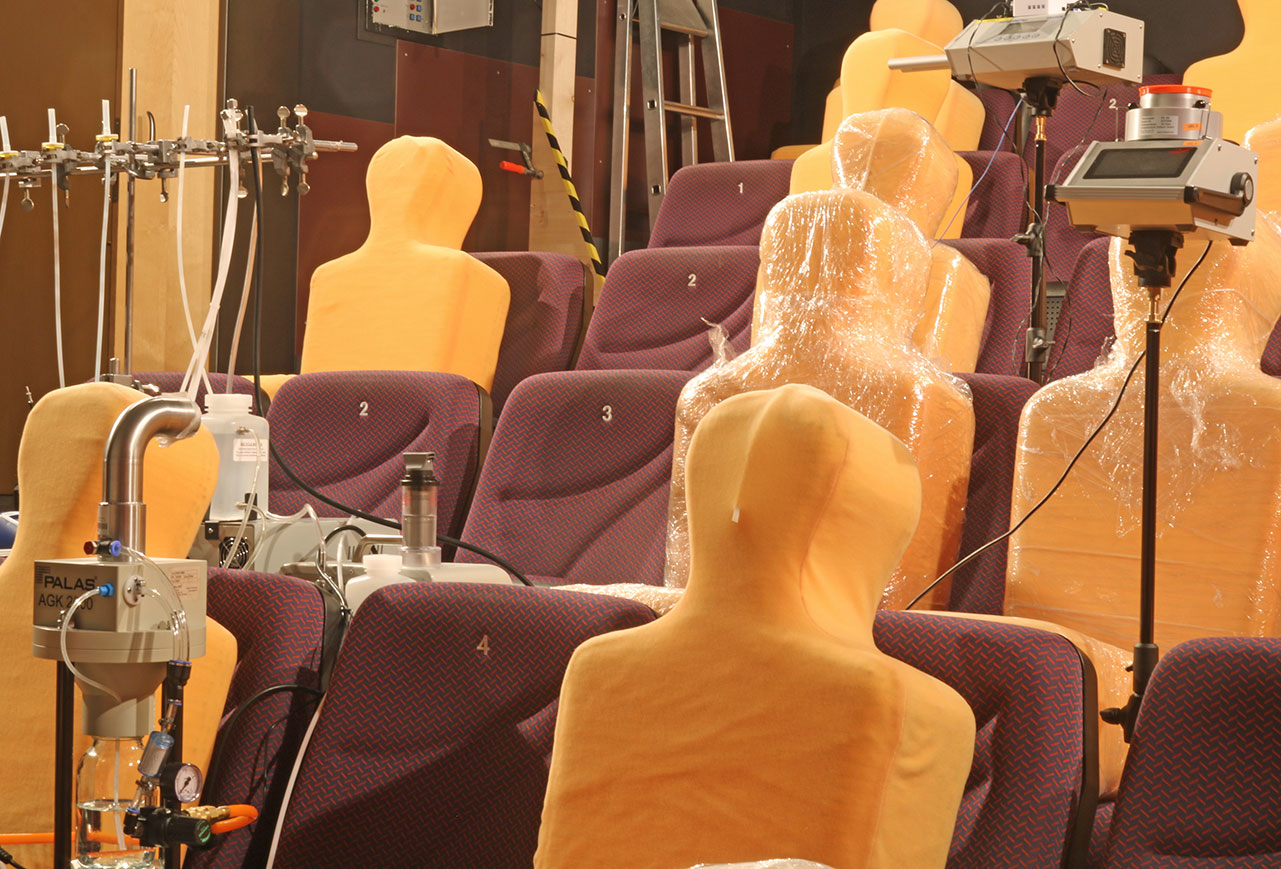Cinemas: good ventilation ensures low risk of infection
A visit to the movies is a nice break from day-to-day life and can be an enjoyable outing, especially when there is a pandemic. But in order to relax and enjoy the film, you want to know that the risk of infection while you are watching it is as low as possible. The good ventilation systems typical of movie theaters make sure that any infectious aerosols are quickly removed. This has also been confirmed by the latest analyses from the CineCov project funded by the Federal Government Commissioner for Culture and Media (BKM).



The latest wave of the Corona pandemic has Germany in its grip. People are asking themselves how they can make their living environment safe yet still escape from time to time from the stressful daily routine imposed by the pandemic. The need to be able to enjoy culture and entertainment, such as a visit to the movies, with a clear conscience is growing: but so is the fear of the risk of infection. At the request of Spitzenorganisation der Filmwirtschaft e. V. (SPIO), which represents the interests of the German film industry, scientists at the Fraunhofer Institute for Building Physics IBP studied the typical ventilation situation in movie theaters. Together with the University of the Federal Armed Forces - among others, in the Neues Rex cinema in Munich - they carried out comprehensive tests and evaluated various scenarios with the help of simulations. The result: any infectious aerosols emitted by the audience are soon removed by the ventilation system.
“The air warmed by humans rises. Especially so-called displacement ventilation, which is typical for cinemas, makes use of this effect,” says Prof. Gunnar Grün, project manager of CineCov, summing up the initial situation. “This has the distinct advantage of effectively removing aerosols and any viruses they contain.” Consequently, the risk of infection decreases - which is very much in line with the low percentage of Luca app alerts reported by cinemas recently (1.7 percent)[i].
CineCov initiator Dr. Thomas Negele, former president of SPIO and himself an operator of a cinema in Straubing, explains the situation in more detail: “It is hard for us to understand why much stricter access regulations have been imposed on cinemas than on pubs and restaurants, for example. Current scientific analyses prove that movie theaters can be operated safely with only a low risk of infection for humans. It is a matter of concern to all to standardize the best possible safety measures today for implementation tomorrow. Our goal, therefore, is to make this beautiful form of film culture an even safer experience for everyone, while providing policymakers with more differentiated information at the same time.
New generation of indoor air hygiene: ventilation plus air purification
Today, another Fraunhofer IBP measurement campaign is getting off the ground at the Trifthof movie center in Weilheim, Upper Bavaria. Following initial, promising trials with additional methods for disinfecting air and surfaces, the effectiveness of further alternatives is being explored. Using surrogate (model) viruses, the Hygiene and Indoor Climate Research Group at Fraunhofer IBP is investigating whether or how many infectious aerosols can be detected in the immediate vicinity of an index person - with and without air purification. These technologies are evaluated on the basis of the tests designed for use in cinemas. The findings are immediately incorporated into revised hygiene concepts for movie theaters, which are being developed in collaboration with Institute ASER e.V., a German institute for occupational medicine, safety and ergonomics. Agent simulations and tools from Fraunhofer Singapore and Fraunhofer Austria are being used to further optimize visitor management - for example, in foyers and other areas where people meet. During implementation of the hygiene concepts, cinema operators can obtain advice and support via a competent contact point in order to clarify any uncertainties concerning hygiene, occupational health & safety and technical feasibility.
Background information on the CineCov project
Indoor air hygiene and use of air purification technologies in cinemas in the Covid 19 pandemic
To develop robust and feasible hygiene concepts for movie theaters during the Covid 19 pandemic, solutions for minimizing the spread of corona viruses via aerosols need to be assessed - especially for rooms where events involving large numbers of people are held. To this end, representative premises with typical ventilation systems are selected for the project. The operator installs the air purification systems. Their cleaning effect will then be studied in tests using surrogate viruses and fluidic processes, and simulations will be carried out to demonstrate the spread of aerosols. Prototypical hygiene concepts for cinemas will subsequently be developed on the basis of these findings. To implement the concepts in operational movie theaters, experts will be on hand to eliminate any uncertainties relating to hygiene, occupational health & safety and technical feasibility.
Project consortium:
- Fraunhofer Institute for Building Physics IBP
- Institut für Arbeitsmedizin, Sicherheitstechnik und Ergonomie e.V. (ASER)
- University of the Federal Armed Forces Munich, Institute of Fluid Mechanics and Aerodynamics
- Fraunhofer Singapore
- Fraunhofer Austria
- Spitzenorganisation der Filmwirtschaft e. V. (SPIO)
Contact:
- Prof. Gunnar Grün
Email: gunnar.gruen@ibp.fraunhofer.de - Dr. Thomas Negele
Email: dr.negele@web.de
Further Information
Last modified: